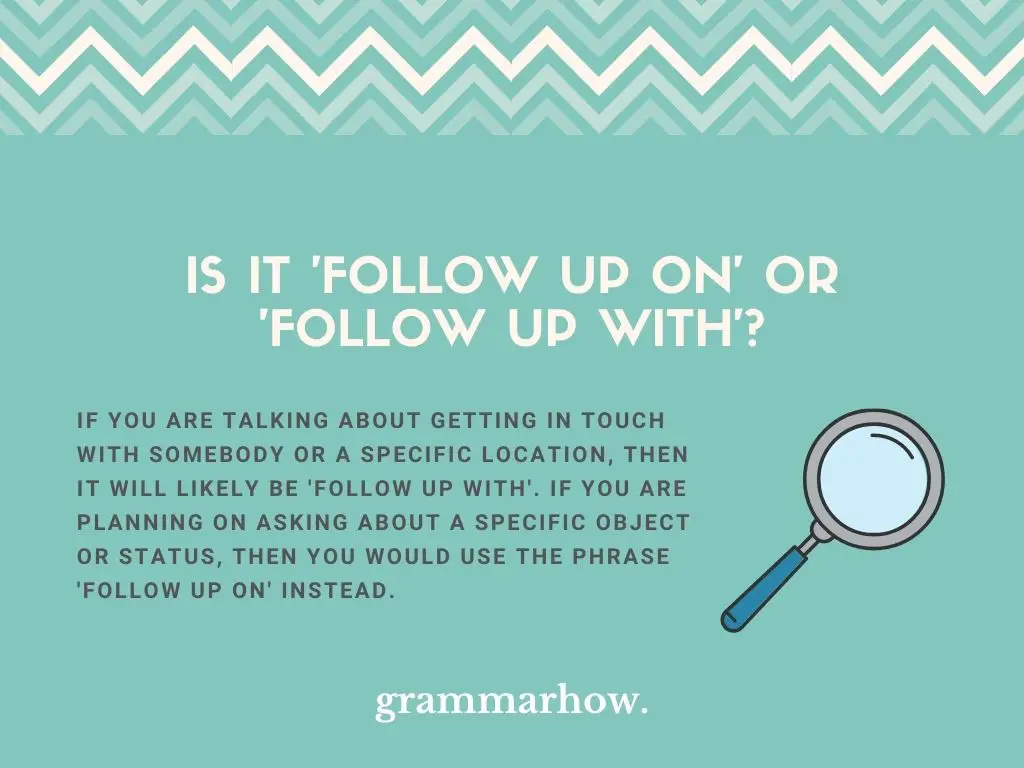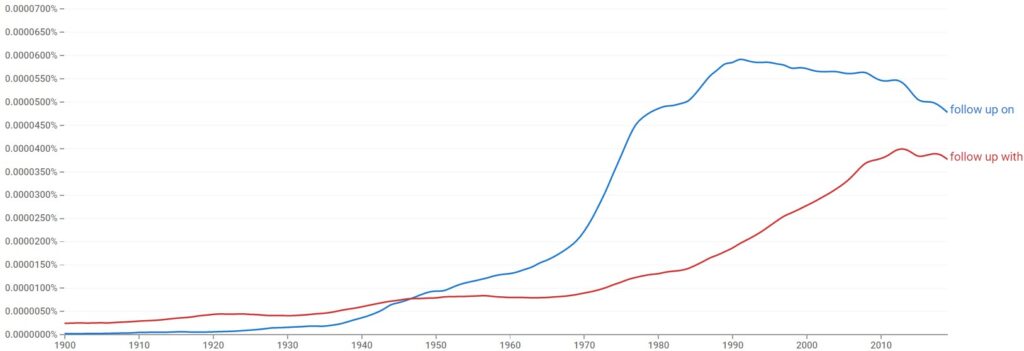Wondering whether you should be using the phrase ‘follow up on’ or ‘follow up with’? You are on the right page! Here, we are going to walk you through the correct way to use both of these terms. Hopefully, this will give you more of an idea about which phrase in a variety of situations.
Is It ‘Follow Up On’ or ‘Follow Up With’?
If you are talking about getting in touch with somebody or a specific location, then it will likely be ‘follow up with’. If you are planning on asking about a specific object or status, then you would use the phrase ‘follow up on’ instead.

The phrase ‘follow up with´’ will be used when you are planning on reaching out to somebody or something specific to check on a status, or simply to respond to them. For example, you would ‘follow up with a store’ or ‘follow up with a person’.
You would use the phrase ‘follow up on’ when you are looking to find out a status on something specific. For example, you can ‘follow up on the inquiry’ or ‘follow up on what was discussed at the meeting”. You may even be able to ‘follow up on the email’.
You are not able to use these phrases interchangeably, so it is important that you choose the correct one to use in your situation. However, in many cases, you will be able to change the structure of the sentence and use the alternative preposition. However, this is best avoided wherever possible.
Follow Up On
The phrase ‘follow up on’ is specifically used when you are discussing something specific that you need to discuss further. For example, if somebody sent you an email and you intend to reply, then you would ‘follow up on the email’..
To give you more of an idea of how ‘follow up on’ works, here are a few ways that you can use the phrase in a sentence: If
- I want to follow up on what we discussed earlier.
- You need to follow up on the delivery status.
- It is important that you follow up on any emails you receive from clients.
- The manager is attempting to follow up on the customer’s complaint.
- Remind me to follow up on the invites that I sent out.
Follow Up With
You would use the phrase ‘follow up with’ when you are discussing reaching out to a specific person or location based upon an inquiry that you have made. For example, you could ‘follow up with a manager’ or you could ‘follow up with the store’.
There are a few ways that you are able to use ‘follow up with ‘in a sentence, so here are a few ideas. Remember, it is important that you know exactly how to use ‘follow up with’, because it is not interchangeable with ‘follow up on’.
If you look at the previous section, you will be able to see that some of the previous examples have been rewritten to work with the ‘with’ preposition instead.
- I need to follow up with the team about what we discussed in the meeting.
- You need to follow up with the delivery company to check the delivery status.
- It is important that you follow up with anybody that has emailed you.
- The manager is attempting to follow up with the customer to check on the complaint.
- Remind me to follow up with people about the invites that I sent out.
Which Is Used The Most?
According to Google Ngram Viewer, ‘follow up on’ is used the most. However, there is not really a huge amount of difference between the two. It is only used about 10-15% more often.

Neither of these phrases really caught on in terms of use until the 1940s, so they are a relatively recent word combo. It would be interesting to see how the use of these phrases continues to change over time.
Final Thoughts
You should use ‘follow up with’ when you are discussing contacting somebody or somewhere. If you are planning on receiving or checking for further information on an object or piece of information, then you would use ‘follow up on’. They cannot be used interchangeably.
You may also like:
Followup, or Follow Up, or Follow-up? (Helpful Examples)
10 Better Ways To Say “I Just Wanted To Follow Up” On Email

Martin holds a Master’s degree in Finance and International Business. He has six years of experience in professional communication with clients, executives, and colleagues. Furthermore, he has teaching experience from Aarhus University. Martin has been featured as an expert in communication and teaching on Forbes and Shopify. Read more about Martin here.
